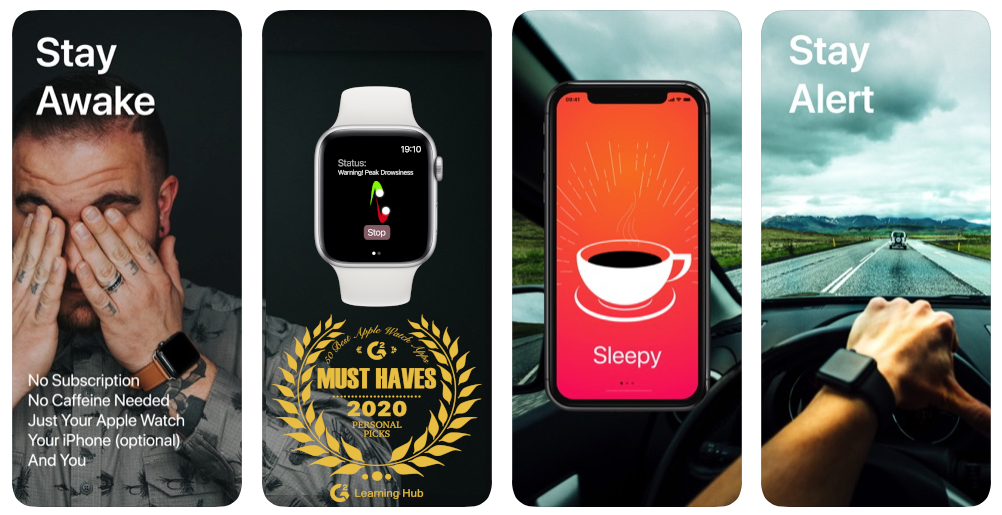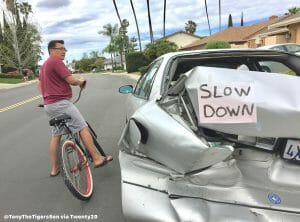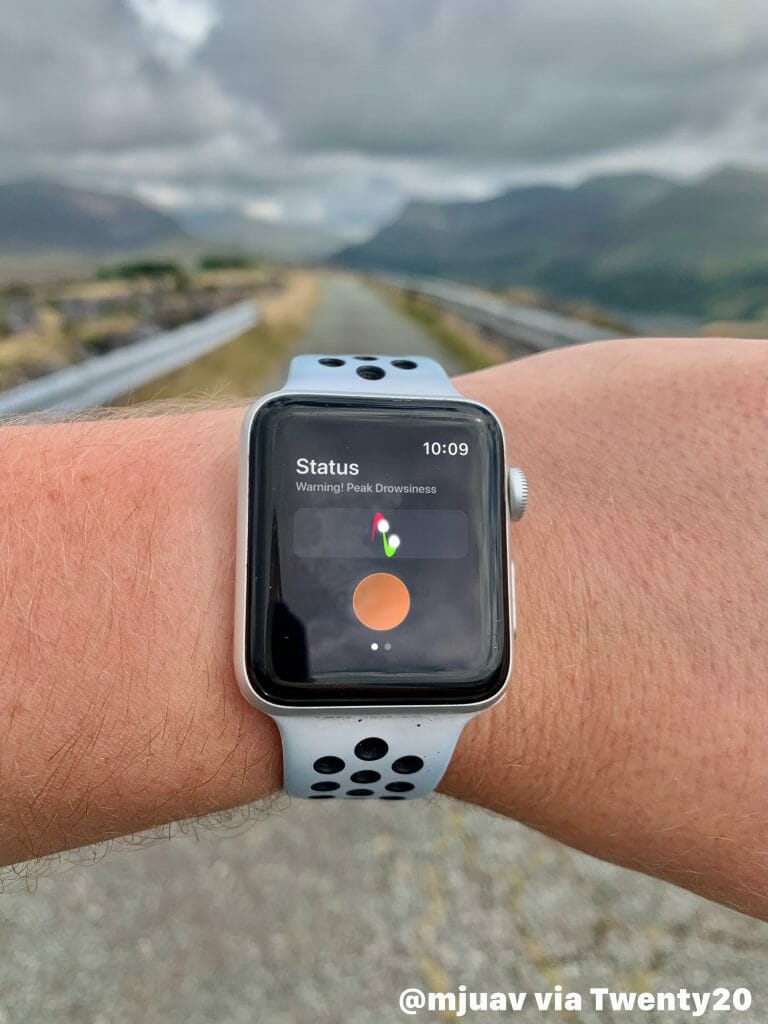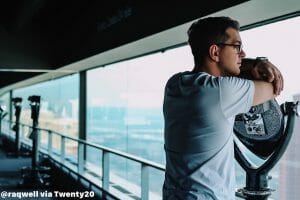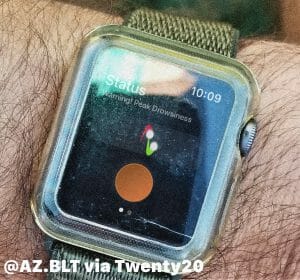How To Out Smart Your Tiredness
Knowing what I know now I feel duped that I thought caffeine would help me get through the day!
Your Apple Watch, V-CAF & You
Stay awake and alert…
I had some urgent work to get done and time was against me. Caught between a rock and a hard place I decided to power on and resorted to coffee to help me beat the tiredness.
This was before my abstinence from caffeine and I’d always used some form of caffeine to get me through the tough times. Unfortunately on this occasion my coffee didn’t seem to help. “No problem, I’ll just drink more”, I thought. But by now more meant having my sixth espresso (with a teaspoon of sugar).
Sure enough it seemed to work for a little while but soon after I felt even more tired, so I decided to stop for the night and continue in the morning. Bad idea! I went to bed and couldn’t get to fall asleep even though I felt exhausted. At first I thought it was due to the work that I still had to finish, but at some point near sunrise I realised that it must of been all the coffee I had!
I knew it was not going to be a pleasant day ahead.
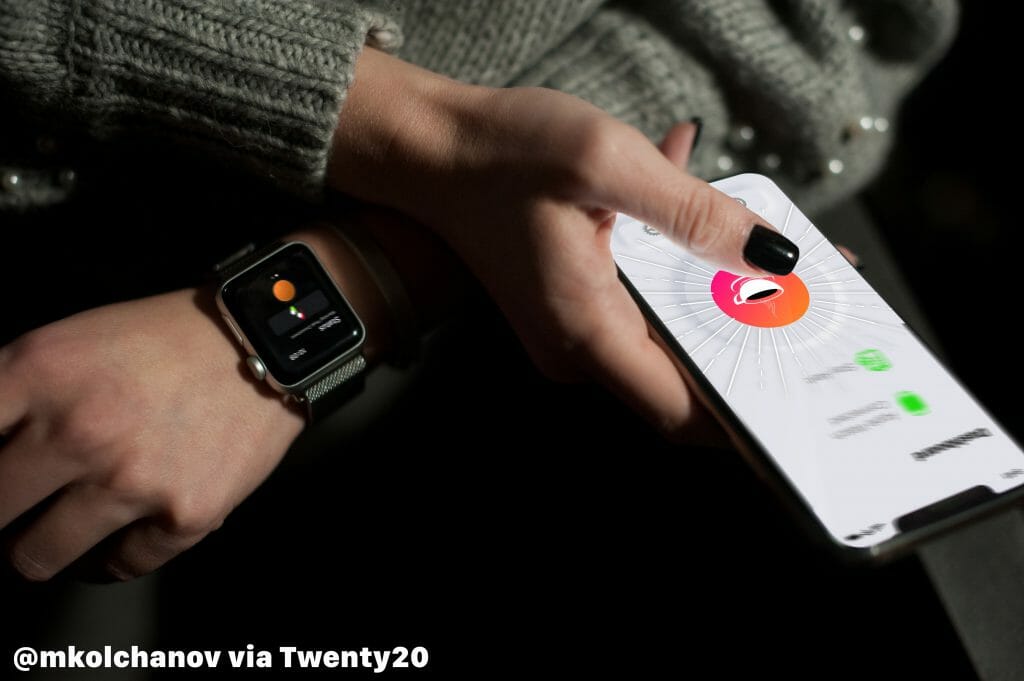
The Old Path
Getting out of bed and feeling tired, I did what most people do and reached for the coffee to start off the day. And as I’ve said many times before, coffee (or more specifically, caffeine) works, just not the way that most people think.
Caffeine works by interlocking with your adenosine receptors which has the effect of blocking their ability to respond to the adenosine levels in your brain. Your body produces adenosine throughout the day and high levels of adenosine activate your adenosine receptors to indicate to your brain that your tiredness levels are increasing.
Caffeine manipulates your adenosine receptors to make you feel more alert than you actually are, which many people confuse with gaining more energy when in fact they have the same amount of energy and tiredness as they did before consuming caffeine. Caffeine is so good at blocking adenosine that its effects can last up to twelve hours.
Knowing what I know now I feel duped that I thought caffeine would help me get through the day! My plan was to drink a cup of coffee whenever I felt tired so that I could concentrate in short bursts and get things done. It had worked in the past, so I didn’t think that it wouldn’t work now, especially after a night of not being able to sleep well due to the amount of coffee that I’d drunk throughout the last couple of days.
Unfortunately I didn’t count on my caffeine tolerance levels increasing and just when I needed the caffeine fix the most, it didn’t make me feel alert or able to concentrate any better than before!
Dead End
What You Should Know about Caffeine states: “Caffeine does not accumulate in the bloodstream or body and is normally excreted within several hours following consumption.” In fact, only about 1 percent of caffeine is excreted. The remaining 99 percent must be detoxified by the liver, and the removal of the resulting metabolites is a slow and difficult process. In Chapter 3, you will learn that it can take up to twelve hours to detoxify a single cup of coffee. In fact, the matter of accumulation has never been resolved. Evidence suggests that it may take up to seven days to decaffeinate the blood of habitual coffee drinkers. Plus, it can take three weeks or more for the body’s levels of stress hormones to return to normal. If that’s not accumulation, what is?
Cherniske, Stephen Snehan . Caffeine Blues (pp. 20-21). Grand Central Publishing.
To compensate for my apparent lack of alertness I had a few more cups of coffee and a cola. After a short while, although I didn’t feel great and clear headed, I felt better than I had before, but not for long. After about forty minutes I felt tired again and wanted more caffeine.
What I didn’t know then was that my body’s caffeine tolerance had increased significantly so I would need to consume much more caffeine just to get to the point where I felt normal. To make matters worse, when you become dependent on caffeine to keep you awake and functioning, the act of not consuming caffeine for a brief period can induce withdrawal symptoms such as:
- Headaches
- Fatigue
- Lack of concentration
- Depression
- Diarrhea
- Vomiting
- Nausea
Although annoying, caffeine withdrawal symptoms for some people can pass quite quickly (a couple of days), but for others it can take weeks.
In my case I started to feel extremely tired and found it difficult to concentrate. I knew that I wouldn’t get any work done so I decided to take the rest of the day off and recover at home. Luckily it was the weekend so I decided to keep away from caffeine, and during the day get outside and go for walks, and get to bed by 10pm during the evenings.
I felt lazy for most of the weekend and decided to do the very minimal that I could around the house and I didn’t go out too much (mostly to the shops to get food and supplies). I dozed off a lot and didn’t eat much, but by Sunday I found that my head felt clearer and I wasn’t feeling so irritable.
I decided that the following week I would keep away from caffeine and get to bed on time. Caffeine did help, but only briefly.
Work Smarter
These days I rarely drink coffee and although I do enjoy a caffeinated cold beverage once in a while, I don’t depend on caffeine to help me to focus or concentrate.
Instead I make it a daily priority to get to bed at roughly the same time every night (including during holidays), getting good quality sleep as well as getting enough sleep, exercising daily and eating more healthy.
Taking these steps alone has helped me more than overcome my caffeine dependance and I believe increased my level of productivity as well. Doing this has also helped me concentrate so that the quality of my work improved too.
In addition I manage my tiredness levels better than I did in the past and as I like gadgets, use my iPhone and Apple Watch to help me. In particular I regularly use our app V-CAF Stay Awake Stay Alert throughout the day to inform me of when my alertness is dropping so that I can do something to wake myself up.
In other articles I’ve mentioned how I useV-CAF to notify me when it’s time to take a break, and where I can (usually in the afternoon after lunch), I either have a 20 minute nap or go for a walk or stretch and do some light exercises (for example my martial arts forms) to help reengage my mind with my body. I’ve found that after taking a quality relaxing break, when I get back to my desk, things just flow and work gets done quicker.
Review
Since the industrial age caffeine has been the go to drug of choice to help us with our alertness and overcoming tiredness. Although caffeine appears to work, in the long run our minds and bodies pay the price in disrupted sleep, caffeine dependancy and risking intoxication due to harmful chemicals found in coffee.
To date, over 700 volatile substances in coffee have been identified, including more than 200 acids and an incredible array of alcohols, aromatic compounds, carbonyl compounds, esters, hydrocarbons, heterocyclic compounds, and terpenoids. Nonvolatile substances in coffee include caffeine and other purines, glycosides, lipids, melanoidins, caffeic acid, and chlorogenic acid. And that’s just the stuff that’s supposed to be there. Coffee often contains a raft of pesticide residues and other contaminants such as nitrosamines, solvents, and mycotoxins. These carry well-defined health risks, and some are carcinogenic.
Cherniske, Stephen Snehan . Caffeine Blues (p. 16). Grand Central Publishing.
Thankfully there are alternatives that are far less harmful and work with our bodies such as diet, exercise and sleep. There are also smart devices such as the Apple iPhone and Apple Watch that coupled with apps such as “V-CAF Stay Awake Stay Alert” can be used to help you manage your tiredness levels and get more out of the day.
Afterword
The deception has been well coordinated by an industry whose goal is quite simple: to get as much caffeine into your body as possible. If the caffeine industry can accomplish that, they have you as a customer for life. They know caffeine saps your natural sense of vitality, leaving you dependent on their products to get through the day. They know that you actually crave their products and, more importantly, that you suffer when you don’t consume them. It’s a marketing dream, and it’s legal. No wonder more and more companies are jumping on the caffeine bandwagon, churning out products from specialized coffees and teas to “herbal” caffeinated energy pills, caffeine-laced fruit beverages, “supercharged” soft drinks, caffeinated beer, and even caffeinated bottled water.
Cherniske, Stephen Snehan . Caffeine Blues (p. 4). Grand Central Publishing.
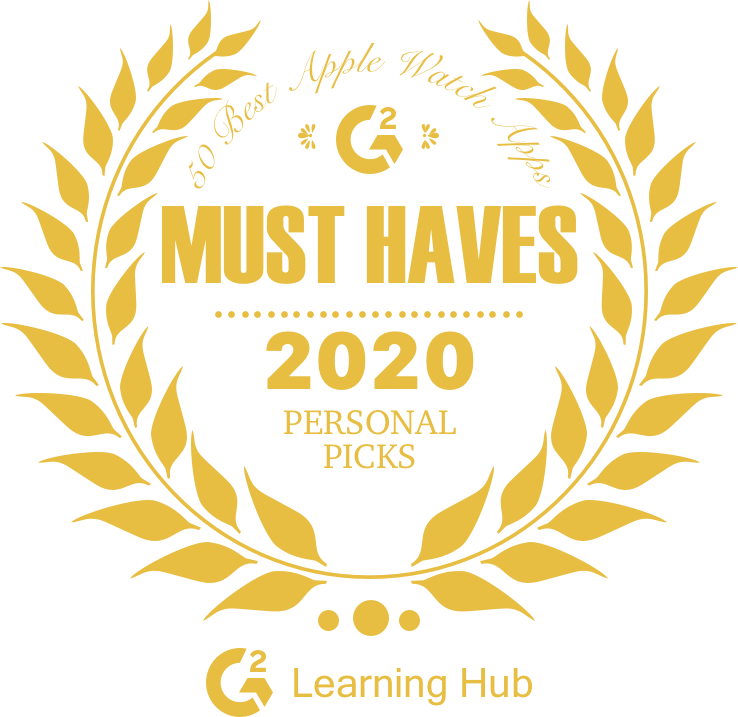
Now available on the App Store, download it now!
